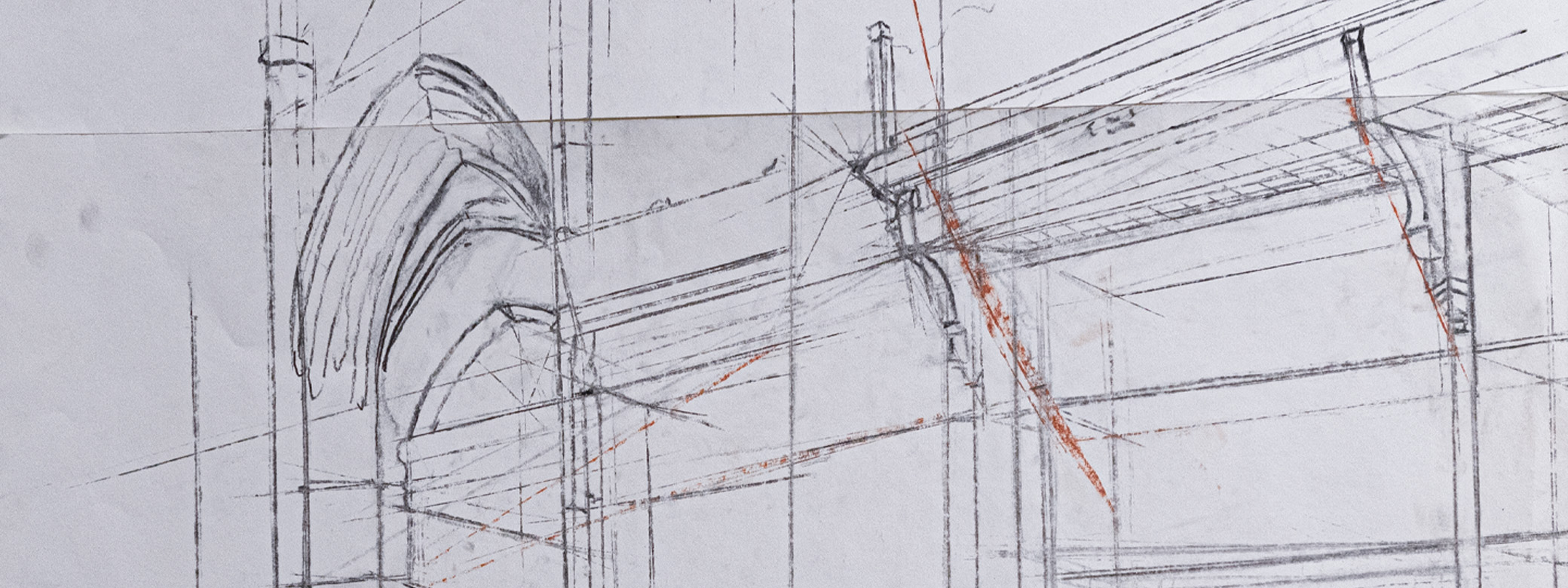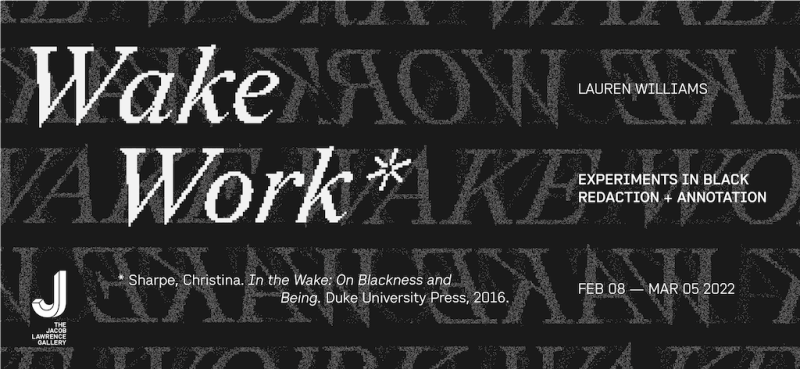Exhibition
February 8 – March 5, 2022
What happens in the wake of state violence, particularly against Black people in the United States? Absence and erasure challenge the imagination in Lauren Williams: Wake Work*, an exhibition created as part of Williams’ 2022 Jacob Lawrence Legacy Residency.
In September 2021, a series of photos surfaced in the news media that showed American border control agents on horseback charging at Haitian migrants as they tried to cross into Del Rio, Texas. In response to the outrage triggered by those images, White House press secretary Jen Psaki announced, “Horses will no longer be used by Border Patrol officers.” This struck Williams as asinine — the horses themselves were not the problem. She wondered how she might formally and materially investigate the absurdity of this proposition and its implications: What happens if you literally remove the horse from the image? How could similar deletions from other historical images of anti-Black violence reshape understanding or enable a kind of resistance? Wake Work* was sparked by these questions, leading Williams to explore redaction, excision, and erasure in a variety of media, including large-scale photographic reproductions, collage, screen printing, and more.
“How can I encourage people to sit with the anti-Black violence in these images differently?” Williams asks. “How can we disturb the systems that threaten to drown Black people in the U.S.? How can we imagine life without them?”
The exhibition takes conceptual cues from Christina Sharpe’s 2016 book In the Wake: On Blackness and Being, which considers the many meanings of “wake” beyond grief and memory rituals. Sharpe writes, “wakes are also ‘the track left on the water’s surface by a ship; the disturbance caused by a body swimming, or one that is moved, in water; the air currents behind a body in flight; a region of disturbed flow; in the line of sight of (an observed object); and (something) in the line of recoil of (a gun)”; finally, wake means being awake and, also, consciousness.’”
Wake Work* builds on Williams’ recent work. Her 2021 site-specific installation at Red Bull Arts Detroit, Making Room for Abolition, used quotidian objects to create a living room that provoked conversations about the future possibilities of a world without police and prisons. A series of her digital collages and experimental writing, published in 2021 as part of the collection Waiting, examined Black rage as material, exploring its contours, tensions, and impatience; mapping the nature of its accumulation, containment, and expression.
Now in its seventh year, the Jacob Lawrence Legacy Residency supports new work by Black artists. As part of a collaboration between the Jacob Lawrence Gallery and Wa Na Wari, a center for Black art and belonging in Seattle's Central District, Williams will have an additional exhibition of related work at Wa Na Wari in Spring 2022.
About the artist
Lauren Williams is a Detroit-based designer, researcher, and educator. She works with visual and interactive media to understand, critique, and reimagine the ways social and economic systems distribute and exercise power. Through her creative practice and research, she often investigates Blackness, identity, bodiliness, and social fictions to examine how racialized power is felt, embodied, and embedded into institutions. Themes of trust and transformation enabled by social engagement shape her orientation to relationships as both media and method—often working through collaboration, facilitation, collective production—as well as the questions she examines surrounding power and oppression, social relations, and social movements. Williams has taught design + interdisciplinary studios and intensives at the College for Creative Studies, ArtCenter College of Design, CalArts, and elsewhere. She has also managed programs and policy aimed at cultivating economic justice at Prosperity Now in Washington, DC. Williams received her MFA in Media Design Practices from ArtCenter College of Design and holds a BA in Economics / Global Studies from the University of North Carolina at Chapel Hill.

